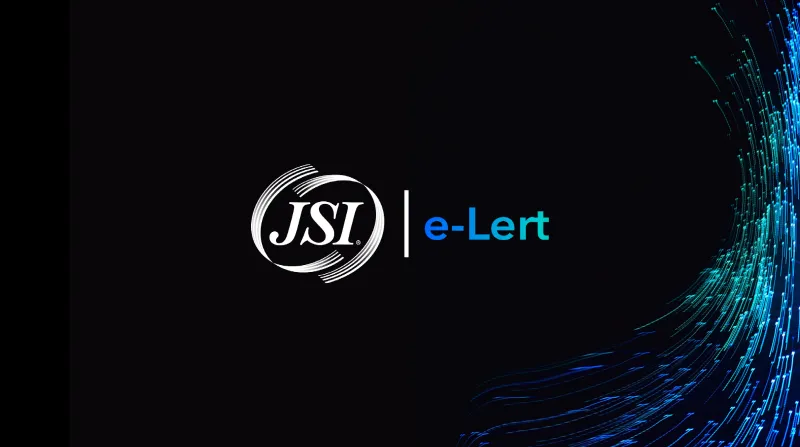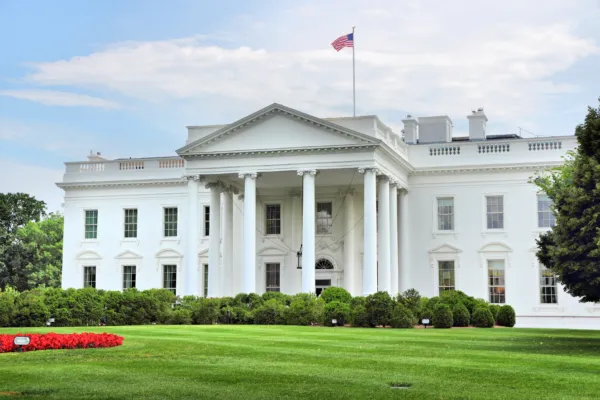
New Davis-Bacon Rules & Final Guidance on BABA

New Davis-Bacon Rules Take Effect October 23, 2023
The U.S. Department of Labor (DOL) recently announced a final rule updating the Davis-Bacon and Related Acts regulations, which takes effect on October 23, 2023.
The final rule is the most comprehensive update to the Davis-Bacon regulations (29 CFR Parts 1,3, and 5) in nearly 40 years. It is expected to have a significant impact on the construction industry, which includes broadband construction projects funded by a federal agency.
JSI recommends that awardees who receive federal broadband awards that are administered by the Department of Treasury, Department of Agriculture, or National Telecommunications and Information Administration first determine if the awarding agency requires compliance with the Davis-Bacon Act. If so, then the recipient must include Davis-Bacon provisions in its contract with the subrecipients and contractors. Note that the Davis-Bacon Act does not apply to engineers unless an engineer performs physical labor on the project.
Subrecipients/contractors must adhere to the following:
• Obtain the prevailing wage rates for the project. The National Prevailing Wage Center (NPWC) determines the prevailing wage rates. The NPWC is the official source of prevailing wage determinations for federal and federally assisted construction projects, as well as for certain employment-based visa programs.
• Pay their workers the prevailing wage rates, plus fringe benefits. The fringe benefits include items such as health insurance, retirement benefits, and vacation pay.
• Keep records of their workers’ wages and hours. These records must be kept for three years after project completion and must be available for inspection by the DOL.
• Submit weekly certified payroll records to the Department of Labor for Contractors and Subcontractors with 25 or more employees; those with 25 or fewer employees must submit certified payroll records monthly. Submit all certified payroll records to the DOL within ten days of the end of the pay period.
• Comply with all other requirements of the Davis-Bacon Act, which includes posting notices, providing certified payrolls, and paying prevailing wages to apprentices and trainees.
Companies planning to apply for the Broadband Equity Access and Deployment Act (BEAD) program should keep these considerations in mind as the new rules will impact BEAD winners.
Awardees failing to comply with the Davis-Bacon Act may be subject to penalties, including:
• Back wages: The Subrecipient/contractor or subcontractor may be required to pay back wages to the underpaid workers.
• Civil penalties: The Subrecipient/contractor or subcontractor may be fined up to $10,000 per violation.
• Criminal penalties: The Subrecipient/contractor or subcontractor may be fined up to $10,000 and/or imprisoned for up to one year per violation.
• Debarment: The Subrecipient/contractor or subcontractor may be debarred from future federal contracts.
The penalties the DOL can impose will depend on the severity of the violation and the subrecipient/contractor’s or subcontractor’s history of compliance.
Contact Andrea Robinson or Barbara Greger with any questions regarding the new rules or if your company needs assistance ensuring compliance with the new rules.
Final Guidance on Build America, Buy America Effective October 23, 2023
The Office of Management and Budget (OMB) issued final guidance on how to implement the Build America, Buy America Act (BABA) provisions of the Infrastructure Investment and Jobs Act. The final guidance takes effect on October 23, 2023, and will apply to all federal awards, including infrastructure projects that are obligated on or after this date. Federal awards for infrastructure projects that were obligated on or after May 14, 2022 (the effective date of BABA) but before October 23, 2023, will instead be subject to OMB Memorandum M–22–11.
What does the final guidance do?
The final guidance introduces a new section, Part 184, within Title 2 of the Code of Federal Regulations (2 CFR), which provides clear direction to Federal agencies on applying BABA’s Buy America Preference (Buy America) and revises 2 CFR § 200.322. The Buy America Preference promotes using American-made products and materials for federally funded projects such as infrastructure projects. The following guidance applies to awardees, whether a company is a recipient or subrecipient, of Federal financial assistance and their contractors.
First, the new Part 184 includes definitions for key terms, including iron or steel products, manufactured products, and construction materials. Construction materials include (i) Non-ferrous metals; (ii) Plastic and polymer-based products (including polyvinylchloride, composite building materials, and polymers used in fiber optic cables); (iii) Glass (including optic glass); (iv) Fiber optic cable (including drop cable); (v) Optical fiber; (vi) Lumber; (vii) Engineered wood; and (viii) Drywall.
Part 184 also confirms that “all manufacturing processes” for construction materials must occur in the United States. It explains how the “all manufacturing processes” standard should be satisfied for each construction material. For example, for optical fiber, from the initial preform fabrication stage through the completion of the draw must occur in the United States.
The new Part 184 affects infrastructure projects by imposing certain requirements on using American-made products and construction materials in projects that receive federal funding. If your company has an ARPA, Middle Mile, ReConnect award, or any federal award, including upcoming BEAD awards, the final guidance affects your compliance with Buy America.
Awardees and their contractors must carefully navigate these requirements to ensure compliance and successful project execution. Complying with Buy America may delay project timelines, particularly if there are difficulties in sourcing domestic materials. In some cases, Buy America may limit the range of materials and products available to project managers and contractors, potentially affecting project design and quality, and increasing project costs.
Second, OMB revised text in 2 CFR § 200.322. Instead of stating that “Federal agencies providing Federal financial assistance for infrastructure projects must comply with the Buy America preferences set forth in 2 CFR part 184,” the revised text now states that Federal agencies must “implement” such provisions.
What happens if certain materials are not available?
The final guidance restates the circumstances under which awardees may request Buy America waivers:
1. A public interest waiver, if applying BABA, would be inconsistent with the public interest.
2. An unreasonable cost waiver if the inclusion of iron, steel, manufactured products, or construction materials produced in the U.S. will increase the cost of the overall project by more than 25%.
3. A nonavailability waiver when types of iron, steel, manufactured products, or construction materials are not sufficiently available.
The final guidance outlines the process Federal agencies should implement to allow awardees of federal awards to request waivers.
Contact Andrea Robinson or Barbara Greger with any questions regarding the new rules or if your company needs assistance with BABA or other post-award compliance requirements.









